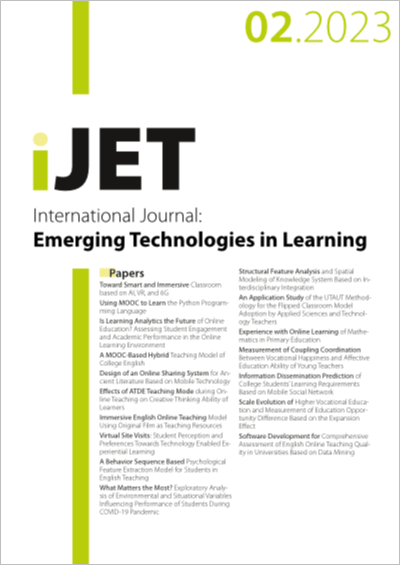A MOOC-Based Hybrid Teaching Model of College English
DOI:
https://doi.org/10.3991/ijet.v18i02.35535Keywords:
English class, Mixed teaching mode, Bayesian network, Knowledge tracking modelAbstract
In the era of intelligence, Internet + technology is widely used in various fields, and English Teaching in the education industry of colleges and universities gradually tends to be an online and offline mixed teaching mode. However, under the MOOC model, the feedback of College Students’ English learning and the recognition of their knowledge level has become new difficulties. Aiming at the feedback of students’ learning situation under the mixed mode of College English teaching, this paper uses the optimized Bayesian knowledge tracking model (BKTM) to predict students’ English learning situation and introduces students’ learning behavior and forgetting behavior to optimize parameters. Finally, a performance verification experiment is carried out by analyzing the students’ answer performance in College English mixed teaching. The results show that the prediction errors of the four knowledge points of 60 students in the two classes are all about 7%, and the maximum error is 11%. Experiments show that the model has high accuracy and stable performance in predicting the probability of mastering knowledge points.
Downloads
Published
How to Cite
Issue
Section
License
Copyright (c) 2022 Tan Feng, Laith Abualigah

This work is licensed under a Creative Commons Attribution 4.0 International License.


